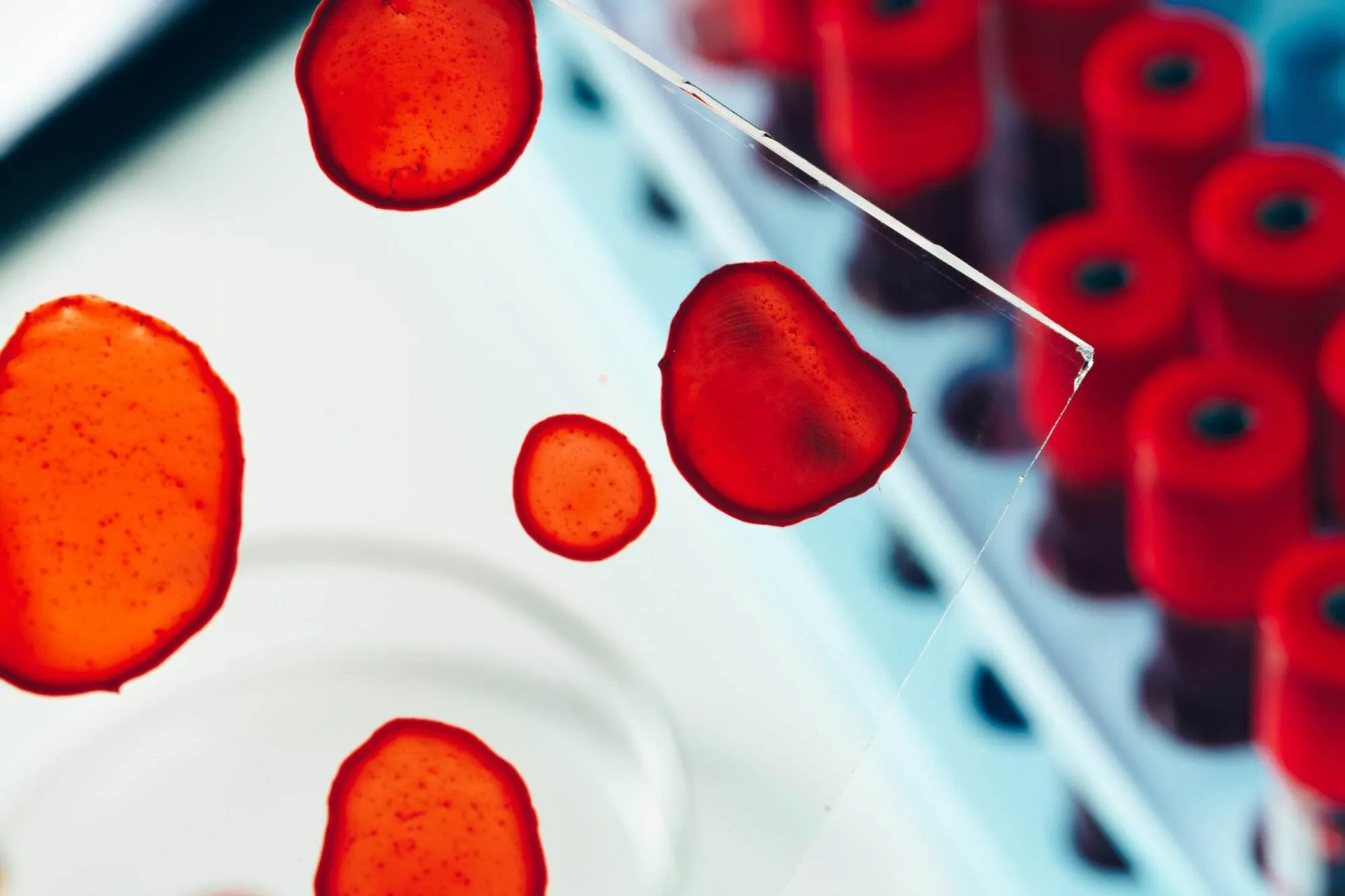Pregnancy is a magical time in a woman’s life, but it can also bring its fair share of challenges. Iron deficiency anemia, a condition in which the body lacks enough iron to generate red blood cells, is one of the most typical pregnancy problems.
While traditional treatments for iron deficiency anemia in pregnancy can be effective, they can also be slow-acting and come with their own set of side effects. However, there is a promising new treatment option on the horizon which is called iron infusions. In this article, we’ll explore the benefits of iron infusions in pregnancy for battling iron-deficiency anemia, offering hope and relief for expectant mothers everywhere.
Understanding Iron Deficiency Anemia In Pregnancy
Anemia of the iron deficiency variety develops when the body is unable to manufacture hemoglobin, a protein found in red blood cells that transports oxygen from the lungs to the body’s tissues. Iron is an essential mineral that the body needs to produce hemoglobin, and without enough iron, the body cannot produce enough red blood cells, leading to anemia. The most prevalent type of anemia in the world is iron deficiency anemia, which can be especially prevalent during pregnancy due to the fetus’s increased need for iron for growth and development.
During pregnancy, the body’s demand for iron increases as the fetus develops, and the mother’s blood volume increases. Iron deficiency anemia in pregnancy can be caused by several factors, including poor dietary intake of iron, decreased absorption of iron, and increased demand for iron. Although the signs of iron deficiency anemia during pregnancy can vary, they frequently include weakness, exhaustion, breathlessness, headaches, dizziness, and pale skin. Iron deficiency anemia during pregnancy, if it is severe, can raise the risk of complications like preterm birth, low birth weight, and maternal mortality.
To diagnose iron deficiency anemia in pregnancy, healthcare providers may perform a blood test to measure the hemoglobin and iron levels in the blood. If iron deficiency anemia is diagnosed, treatment options may include iron supplementation through oral supplements or intravenous iron infusions, depending on the severity of the condition.
Iron Infusions During Pregnancy As A Treatment Option
Iron infusions have become an increasingly popular treatment option for iron deficiency anemia in pregnancy. An iron infusion is a medical procedure in which iron is delivered directly into a patient’s bloodstream through an intravenous (IV) infusion. During an iron infusion, a healthcare provider will insert a needle into a vein in the arm, which is attached to a bag containing iron. The iron is then slowly delivered into the bloodstream over the course of several hours.
One of the main benefits of iron infusions is that they can deliver a high dose of iron directly to the body, which can help to quickly raise iron levels in patients who are severely anemic. This is especially important during pregnancy, as pregnancy hematology can cause a range of complications for both the mother and the baby.
Another benefit of iron infusions is that they may be more effective than traditional treatments for iron deficiency anemia in pregnancy. While dietary changes and supplements can help to increase iron levels, these treatments can take weeks or even months to have an effect. In contrast, an iron infusion can deliver a therapeutic dose of iron in just a few hours.
Additionally, iron infusions may be better tolerated by some patients than traditional treatments, which can cause side effects such as constipation, nausea, and stomach pain. While iron infusions can also cause side effects, such as headache and dizziness, these side effects are generally less common and less severe than those associated with traditional treatments.
Benefits Of Iron Infusions
Iron infusions are a form of treatment for iron deficiency anemia that involves delivering iron directly into the bloodstream through an IV. There are several benefits to iron infusions, particularly for pregnant women who may have difficulty maintaining adequate iron levels through oral supplementation alone.
One of the primary benefits of iron infusions is improved iron levels and associated symptoms. Iron infusions can quickly and effectively increase iron levels in the body, allowing red blood cells to carry oxygen more efficiently and reducing symptoms such as fatigue, weakness, and shortness of breath.
Iron infusions also have a reduced need for oral iron supplements. Oral iron supplements can be challenging to tolerate for some women, particularly those who experience gastrointestinal side effects such as nausea, constipation, or diarrhea. Iron infusions bypass the digestive system, making them a suitable alternative for women who cannot tolerate oral iron supplements.
Another benefit of iron infusions is faster and more effective treatment than oral supplements. Iron infusions can significantly improve iron levels within just a few days, compared to several weeks for oral iron supplementation. This can be especially important during pregnancy, where time is of the essence in ensuring the best possible outcomes for both the mother and the baby.
Lastly, iron infusions can reduce the risk of complications during pregnancy and childbirth. Iron deficiency anemia during pregnancy can increase the risk of complications such as preterm delivery, low birth weight, and maternal mortality. By quickly and effectively treating iron deficiency anemia through iron infusions, the risk of these complications can be reduced, leading to better outcomes for both the mother and the baby.
Who Can Benefit From Iron Infusions
Iron infusions are typically recommended for individuals with iron deficiency anemia who cannot tolerate or do not respond to oral iron supplements. This includes individuals who have gastrointestinal disorders, such as inflammatory bowel disease or celiac disease, that interfere with iron absorption. Iron infusions may also be recommended for individuals who have undergone bariatric surgery or have had significant blood loss due to surgery or trauma.
Pregnant women who have been diagnosed with iron deficiency anemia may also benefit from iron infusions. Pregnancy increases the body’s demand for iron, and iron deficiency anemia is a common complication during pregnancy. Iron infusions can quickly and effectively increase iron levels in the body, reducing symptoms such as fatigue and improving outcomes for both the mother and the baby.
Individuals who have experienced chronic kidney disease may also benefit from iron infusions. Chronic kidney disease can lead to a decreased production of erythropoietin, a hormone that stimulates the production of red blood cells. This can lead to anemia, and iron infusions may be recommended to improve iron levels and red blood cell production.
Lastly, individuals who have experienced significant blood loss due to conditions such as cancer or heavy menstrual bleeding may benefit from iron infusions. Iron infusions can help to quickly replenish iron levels in the body, reducing the risk of complications associated with iron deficiency anemia.
Risks And Considerations Of Iron Infusions
While iron infusions are generally safe and well-tolerated, there are some risks and considerations that should be taken into account before undergoing this treatment. These include:
- Allergic Reactions: Some individuals may experience an allergic reaction to the iron infusion. Symptoms can include difficulty breathing, chest pain, and swelling of the face, lips, or tongue. If you experience any of these symptoms, seek medical attention immediately.
- Infection: Like any invasive medical procedure, there is a risk of infection associated with iron infusions. It is important to ensure that the equipment used for the infusion is sterile and to monitor for signs of infection such as redness, swelling, or fever.
- Overloading Of Iron Stores: In rare cases, iron infusions can lead to an overload of iron stores in the body. This can be particularly problematic for individuals with certain genetic disorders that affect iron metabolism, such as hemochromatosis. Regular monitoring of iron levels is necessary to prevent this complication.
- Interference With Other Medications: Iron infusions can interfere with the absorption of other medications, particularly antibiotics and thyroid hormone replacement therapy. It is important to inform your healthcare provider of all medications you are taking before undergoing an iron infusion.
- Cost: Iron infusions can be costly, particularly for individuals who do not have insurance coverage for the procedure. It is important to discuss the cost and coverage options with your healthcare provider and insurance provider before undergoing treatment.
Iron-deficiency anemia is a common and serious condition that affects many women during pregnancy. Fortunately, with the advent of iron infusions, there is a powerful new tool available for battling this condition. By delivering a high dose of iron directly into the bloodstream, iron infusions can quickly raise iron levels and alleviate symptoms, offering new hope and relief for expectant mothers.
If you are struggling with iron-deficiency anemia during pregnancy, we encourage you to speak with any infusion healthcare provider near you to learn more about the benefits of iron infusions and whether this treatment option may be right for you. With the right care and attention, you can overcome iron-deficiency anemia with iron infusion pregnancy procedures and enjoy a happy, healthy pregnancy. For more information on this, you can contact us at Heme Onc Call medical practice today.






